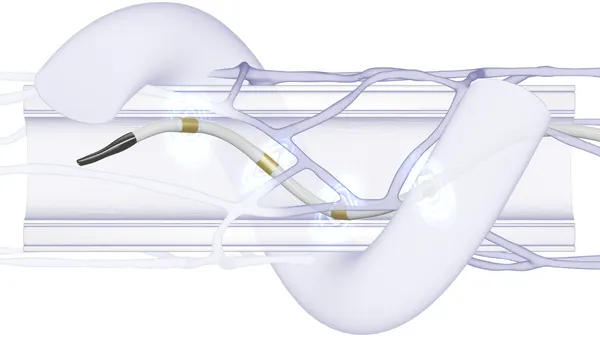Dive Brief:
- The U.K.'s Medicines and Healthcare products Regulatory Agency is overhauling its regulations applying to software and artificial intelligence as a medical device.
- MHRA has developed a Software and AI as a Medical Device Change Programme it contends will provide a regulatory framework that will ensure "the U.K. is the home of responsible innovation." The U.K. device regulator is seeking changes across the software as a medical device lifecycle, from qualification to classification to pre- and post-market requirements.
- The overhaul comes as the FDA issued its own action plan in January for establishing a regulatory approach to such software. Bradley Merrill Thompson, attorney at the law firm Epstein Becker Green, contends that MHRA is a "small step" ahead of its U.S. counterpart. Both agencies are looking to achieve their objectives through guidance rather than legislation, Thompson said.
Dive Insight:
With the withdrawal of the U.K. from the European Union, MHRA as part of its new Brexit freedoms is moving to update the country's regulations for software and AI as a medical device without the burden of accommodating the regulatory approaches of EU members.
"These measures demonstrate the U.K.'s commitment, following our exit from the European Union, to drive innovation in healthcare and improve patient outcomes," states MHRA's announcement. "Regulatory measures will be updated to further protect patient safety and take account of these technological advances."
AI and SaMD technologies have the potential for better diagnosing and treating a wide variety of diseases, but FDA has yet to finalize a regulatory framework for machine learning-based software as a medical device. The agency is considering a total product lifecycle-based regulatory framework for adaptive or continuously learning algorithms.
Thompson points out that MHRA is "basically a small step earlier" than the FDA's AI/ML-based SaMD action plan issued in January, which calls for further developing a proposed regulatory framework by issuing draft guidance.
"It's a step earlier because it's broader — it covers a wide variety of regulatory issues for all software as a medical device, not just AI," according to Thompson. "But overall, both governments are trying to do the same thing: outline a path forward for modernizing medical device regulation to address the unique aspects of AI."
MHRA has working groups developing policy on the different elements articulated in its Software and AI as a Medical Device Change Programme.
"The U.K. has said that it's work products in each of the different streams will trickle out between fall of 2021 and summer of 2023. It doesn't appear that FDA is frankly moving any faster," Thompson said. "The U.K. envisions releasing intermediate documents of course. They will be releasing more detailed timelines of key deliverables and opportunities for public input."
MHRA has invited members of the public to provide their views on possible changes to the overall regulatory framework for medical devices in the U.K., not just AI and SaMD, with the goal of developing a "world-leading future regime" for medtech that prioritizes patient safety while fostering innovation.
Based on stakeholder feedback to FDA's April 2019 discussion paper on a proposed regulatory framework for AI/ML-based SaMD, U.S. regulators released their action plan in January amid calls for regulatory clarity from AdvaMed and other groups.
Jeff Shuren, director of FDA's Center for Devices and Radiological Health, told the Food & Drug Law Institute conference in May the agency's January action plan for establishing a regulatory approach to SaMD puts it on schedule for proposed guidance for an AI/ML framework in 2021.
While Thompson acknowledges FDA plans to publish a draft guidance this year, he said there is no indication so far as to when. The next step, according to Thompson, is the virtual public workshop on the transparency of AI/ML-enabled medical devices scheduled for October 14, which was called for in the FDA's January action plan.











